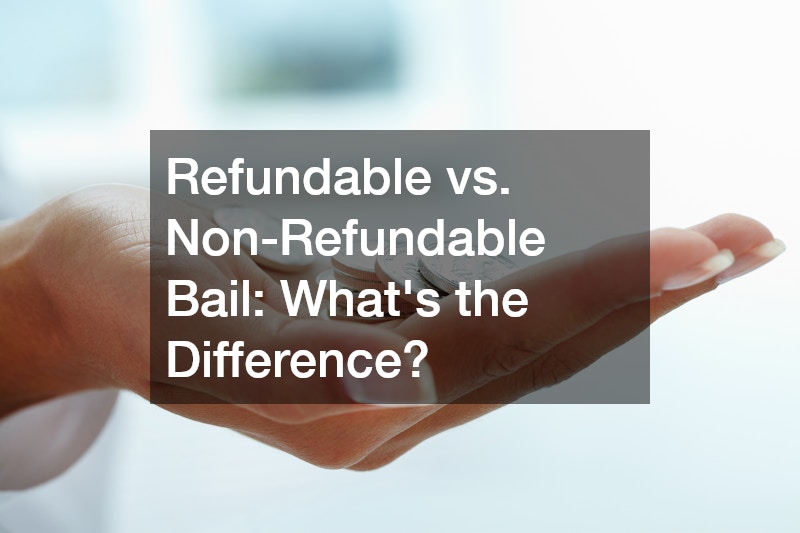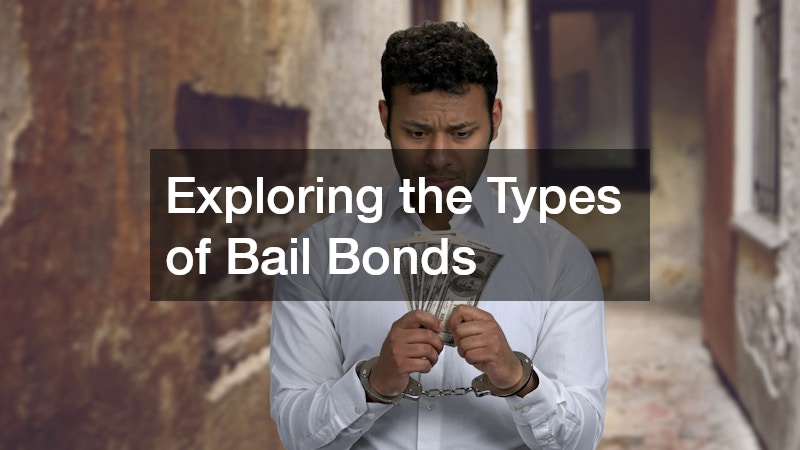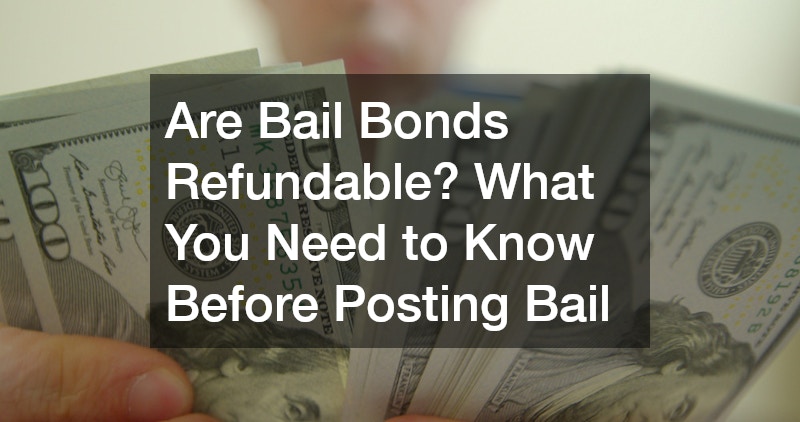When a loved one is arrested, posting bail can feel urgent and emotionally overwhelming. Whether you’re trying to bring someone home or secure your own release, understanding how bail bonds work—and more importantly, whether they’re refundable—can help you make informed financial decisions. Many people assume that paying bail means you’ll get the money back eventually, but that’s not always the case. In this article, we’ll break down the different scenarios in which bail money or bail bonds may be refunded, and what you need to be aware of before signing any paperwork.
What Is a Bail Bond and How Does It Work?
Before diving into refund policies, it’s important to understand what a bail bond actually is. A bail bond is made on behalf of a defendant to make sure they will appear in court. When someone is arrested, the court sets a bail amount based on the seriousness of the crime, risk of flight, and criminal history. If the accused or their family can’t pay the full bail amount in cash, they often turn to a bail bondsman.
The bondsman usually asks for a non-refundable fee, usually 10% of the total bail amount, in exchange for posting the full bail. This fee is the bondsman’s compensation for taking the financial risk. While this helps get the defendant out of jail faster, many people are surprised to learn that this payment is usually not refundable, even if the defendant complies with all court requirements.
Are Bail Bonds Refundable Under Any Circumstances?
Let’s answer the main question directly: Bail bonds are usually not refundable. When you go through a bail bondsman, the 10% fee you pay is the cost of doing business—it’s how the bail company earns its money. You don’t get this money back, even if the case is dismissed or the defendant is found not guilty.
However, here are some situations to consider:
- Cash bail paid directly to the court may be refundable if the defendant attends all hearings.
- Surety bonds through a bondsman are not refundable.
- Property bonds might allow you to recover your collateral if all court obligations are met.
- If the court makes a clerical error or dismisses the case early, you may be able to recover a portion of the court-paid bail.
It’s critical to read the fine print on any bail agreement. Some bail agencies might include additional fees for late payments, missed check-ins, or extended cases.
Refundable vs. Non-Refundable Bail: What’s the Difference?

There are two main categories when it comes to bail payments: refundable and non-refundable. Understanding the difference is essential before putting down your hard-earned money.
Refundable:
- Cash bail paid to the court (in full)
- Property bonds if the collateral is returned
- Bail was returned after a successful court appearance and case closure
Non-Refundable:
- 10% bail bond fee to a bondsman
- Administrative fees from the bail bond company
- Late or missed payment penalties
If you have the financial ability to pay the full bail amount directly to the court, that’s your best shot at receiving a refund, assuming all court appearances are met.
The Cost of Using a Bail Bondsman
When you can’t afford to pay bail in full, a bail bondsman can help, but at a price. Here’s how the costs typically break down:
- 10% of the bail amount (e.g., $5,000 bail = $500 fee)
- Additional fees may apply for processing or credit card use
- Collateral, such as a vehicle or home, may be required for large bail amounts
While this can make the process more affordable upfront, remember, this money is not coming back. Think of it as paying for a service, not putting down a refundable deposit.
Bail Refunds and the Court System
If you paid bail directly to the court, you’re entitled to a refund as long as the defendant appears at all required hearings. Once the case is resolved, the court will process the refund, which may take several weeks. However, if the defendant skips bail, the money is forfeited.
It’s also important to understand that courts may deduct court costs, fines, or fees from your refund. So while you may get money back, it could be less than the original amount paid.
Exploring the Types of Bail Bonds

To make the most informed decision, it helps to understand the types of bail bonds available:
- Cash Bonds – Paid in full to the court and refundable if conditions are met.
- Surety Bonds – Acquired through a bail bondsman; a non-refundable fee is required.
- Property Bonds – Uses property as collateral; refundable if conditions are met.
- Federal Bonds – For federal crimes; higher financial risk and may not be refunded.
- Immigration Bonds – For non-citizens; often expensive and may have strict refund conditions.
Each type has its own implications for refundability and risk. Know your options before making a choice.
Tips Before Posting Bail
Here are some quick tips to protect your finances and ensure you understand what you’re signing up for:
- Ask your bondsman directly: “Is this fee refundable?”
- Read every clause in the bail agreement—especially those about collateral and forfeiture.
- Consult with a defense attorney before paying large sums or pledging property.
- Consider whether paying cash to the court is possible—it may save money in the long term.




Leave a Reply